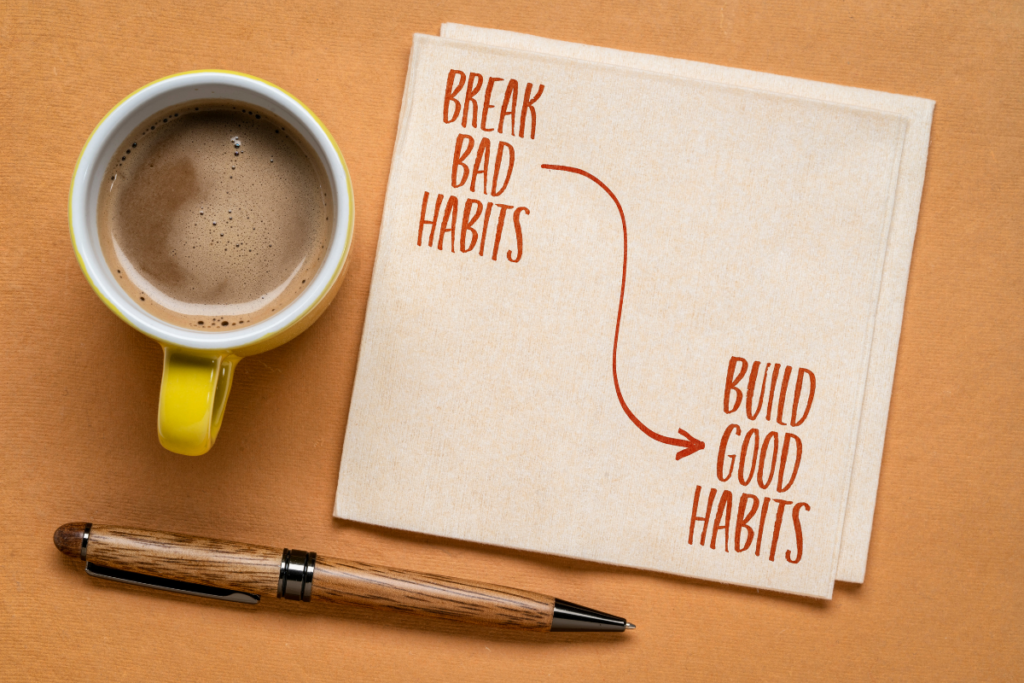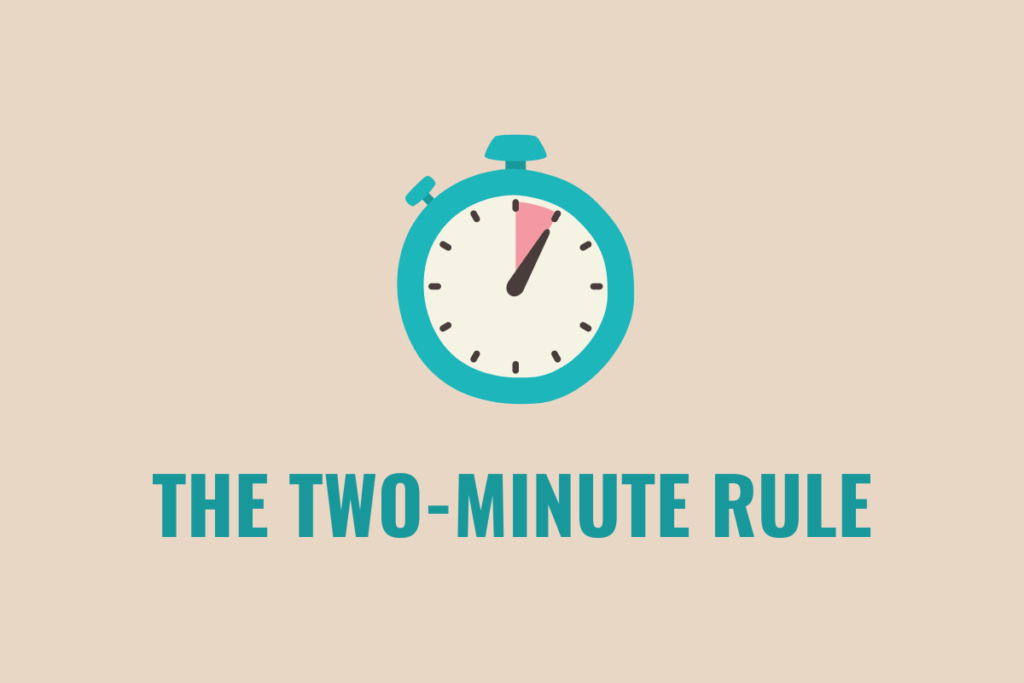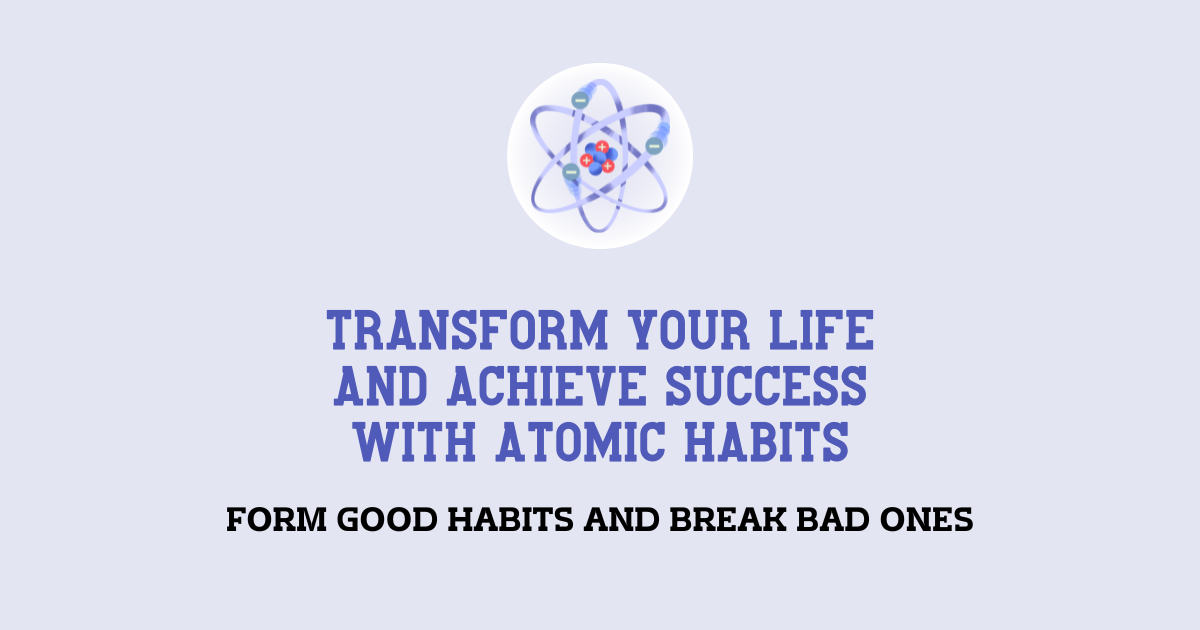Small Changes, Massive Results: How Atomic Habits Can Transform Your Life
We all dream of living a better life – more success, better health, deeper relationships. But achieving those dreams often feels like a monumental task. We’re bombarded with self-help gurus promising overnight transformations, leaving us feeling overwhelmed and defeated. What if we told you that achieving your goals might be simpler than you think? It all comes down to tiny, almost invisible changes: atomic habits.
Table of Contents
The Power of Atomic Habits: A Vote for Your Future Self

In his best-selling book, “Atomic Habits”, James Clear delves into the science behind habit formation and how even the smallest actions can lead to extraordinary results. The key, he argues, lies in understanding that every action we take is a vote for the type of person we want to become.
Imagine This:
- Starting a healthier lifestyle doesn’t need big changes. Small actions can make a big difference. Doing 10 push-ups, drinking an extra glass of water, or taking a 10-minute walk each day can improve your health over time. These small steps build up and help you become the healthier person you want to be.
- If you want to be a writer, you don’t need to spend hours writing every day. Just 5 minutes a day, even if it’s only a few sentences, can help you become the writer you wish to be. These short writing sessions add up and improve your skills over time, helping you reach your writing goals.
- Meditating for 20 minutes a day might seem too hard at first. Instead of feeling discouraged, start with just 2 minutes of meditation. It might seem like a small amount, but it’s a great way to start. Doing 2 minutes of meditation every day can help you build a habit and eventually lead to longer meditation sessions.
Whether you want to be healthier, become a writer, or meditate daily, these seemingly insignificant commitments can be the difference between achieving your goal and abandoning it altogether.
Why Bad Habits Stick and Good Habits Struggle

Our brains like quick rewards more than long-term benefits, making it hard to change habits. That’s why it’s easy to enjoy unhealthy food or scroll social media endlessly—they give instant pleasure. In contrast, good habits like exercise or meditation don’t feel rewarding right away but offer big benefits in the long run.
This “reward mismatch” is a big challenge in changing habits. Eating a donut feels good now, but a sugary diet’s future effects seem far off. Similarly, a tough workout may be uncomfortable now, but having a strong, healthy body later is worth it.
To tackle this challenge, it helps to understand how our brains work with rewards. Knowing we crave instant pleasure can guide us to set up strategies that connect short-term actions with long-term goals. For example, rewarding yourself with a healthy snack after exercising can bridge the gap between short-term effort and long-term health benefits.

Creating a supportive environment is also key. Designing spaces that make healthy choices easy and enjoyable strengthens our habits. This approach reduces the appeal of quick rewards and makes good habits feel more rewarding over time.
In the end, acknowledging our preference for immediate rewards and using strategies that focus on long-term benefits can lead to lasting habit changes and better overall well-being.
The Two-Minute Rule

Don’t overwhelm yourself with huge, ambitious goals. Start with habits so small they barely register, even if they seem insignificant. For example, instead of aiming for an hour of exercise every day, start with just 2 minutes.
The two-minute rule is a powerful way to build momentum. Once you’ve mastered those two minutes, you’ll be more likely to push yourself further.
Why the Two-Minute Rule of Atomic Habits Work Magic:
- Low Barriers to Entry: Atomic habits are so small that they practically demand to be done. Even on the busiest, most exhausting days, finding two minutes for a mini-habit is a piece of cake.
- Momentum Builder: Once you’ve completed your tiny task, you’re likely to feel a surge of accomplishment. This positive feedback loop encourages you to do a little more. Many times, a two-minute meditation session turns into a five-minute or even a 20-minute one, simply because you’ve already started.
- Eliminates Procrastination: When we set large goals, the fear of failure can paralyze us. We think, “I don’t have time for a full workout,” or “I can’t write for an hour today,” so we end up doing nothing at all. With mini habits, that fear evaporates. You’ve already committed to a tiny action, and there’s no pressure to do more.
- Consistency is King: Atomic habits are designed for consistency. By doing a little bit every day, you build momentum and create a habit that truly sticks. Think about it: even if you only read a single page of a book each day, over a year, you’ll have read over 300 pages!
How to Implement Atomic Habits:

- Choose Your Goal: What is one thing you’d love to make a part of your daily life? It could be anything: exercise, writing, learning a new language, spending time with loved ones, or simply cleaning your desk.
- Break it Down: Make the goal as tiny as possible.
- Instead of: Exercising for an hour, commit to one push-up.
- Instead of: Writing for 30 minutes, commit to one sentence.
- Instead of: Meditating for 20 minutes, commit to one deep breath.
- Start Small: Don’t overthink it. Just do it. Those two minutes, one sentence, or one push-up are all that matters.
- Track Your Progress: Seeing your progress, no matter how small, will keep you motivated. Use a simple tracker, like a calendar, or a habit-tracking app.

Examples of Atomic Habits in Action:
- Fitness: Instead of striving for a complete workout, try doing just one push-up daily. You’ll be amazed at how swiftly this simple habit transforms into a consistent part of your daily fitness regimen, gradually building momentum towards better health and fitness.
- Writing: Dream of writing a novel? Begin by committing to write one sentence daily. It may seem small, but over time, those sentences accumulate into something significant. This approach builds consistency and momentum, gradually bringing your novel to life one sentence at a time.
- Reading: If you don’t want to read a whole chapter, read just one page. This will help you stay interested in the book and avoid giving up on it completely. It’s a small step that keeps you engaged and makes the reading more manageable.
- Learning: Instead of learning an entire language, focus on memorizing one new word daily. This small effort will expand your vocabulary gradually and help you stay consistent in your learning journey. It’s a manageable step that adds up over time.
The Power of Momentum:

Atomic habits have a special power to grow into bigger achievements. When you commit to a small action and follow through, you often feel motivated to do more. It’s like a snowball rolling downhill—starting small but gaining speed until it’s unstoppable. Mini habits work similarly, kickstarting your progress and helping you move steadily towards your goals over time.
Just as a snowball gets bigger with each roll, atomic habits boost your motivation and productivity. They create a cycle where small wins build confidence and push you to tackle bigger challenges. This approach not only builds consistency but also shows that persistent effort, no matter how small at first, leads to significant accomplishments. This process highlights the power of starting small and using momentum to make lasting changes in your habits and dreams.

Don’t Fall for Perfectionism:
Trying to be perfect often stops us from moving forward. Atomic habits are about doing things regularly, not being perfect. It’s normal to have days when you don’t feel like doing your mini habit—that’s okay! The key is to keep going and stick to your routine. Even if you only do it for a few minutes, these small efforts really help you keep making progress.
The great thing about atomic habits is they help you keep going over time. When you commit to doing things regularly, you get stronger and better at forming habits. This approach recognizes that progress doesn’t always happen smoothly; there are good days and tough days. Accepting this reality helps you stay determined through challenges and stay focused on your goals.
In the end, the goal isn’t to be perfect every day but to keep making the effort to do things, no matter how you feel. Each time you overcome a challenge, it shows your dedication and strengthens your habit loop, making it easier to keep moving forward in the long run.
Transform Your Life, One Small Change at a Time

Ultimately, habit change isn’t just about modifying behaviors; it’s about transforming your identity. When you truly believe that you are the kind of person who exercises regularly, writes every day, or eats healthy food, those actions become second nature. You’re no longer fighting your habits; you’re simply aligning your actions with who you already see yourself to be.
Don’t underestimate the power of small, consistent changes. By focusing on atomic habits, you can create a ripple effect of positive change, transforming your life and achieving your biggest goals. Remember, it’s not about overnight transformations, but about embracing the power of continuous improvement, one tiny step at a time.
What are atomic habits?
Atomic habits are tiny changes you make in your daily life that can lead to big improvements over time. Instead of trying to change everything at once, this idea is about making small adjustments that add up to important results.
How do I start using atomic habits?
Start by picking one small habit you want to change or create. Make it so easy that you can’t refuse, like drinking a glass of water every morning. Once you feel comfortable, you can gradually make it harder or add new habits.
Can atomic habits really change my life?
Yes! Atomic habits focus on doing things consistently. By practicing small changes every day, you can build strong habits that lead to big changes in your life over time.
How does my environment affect my habits?
Your surroundings can greatly influence your habits. By setting up your space to help you reach your goals—like keeping healthy snacks handy or putting reminders where you can see them—you can make it easier to stick to your atomic habits.
How can I keep track of my habits?
Using a habit tracker can help a lot. You can use a notebook, an app, or a simple calendar to note your daily progress. Tracking your habits keeps you motivated and helps you see patterns in what you do.







